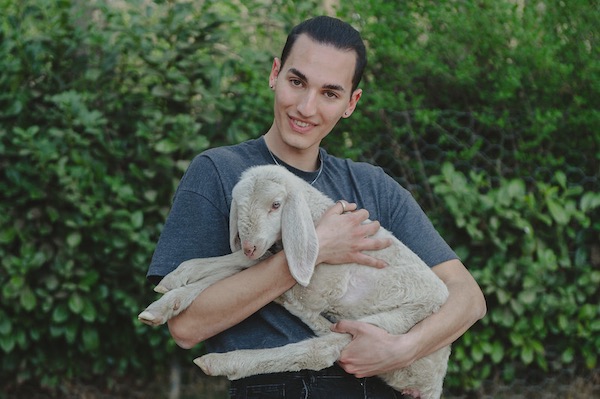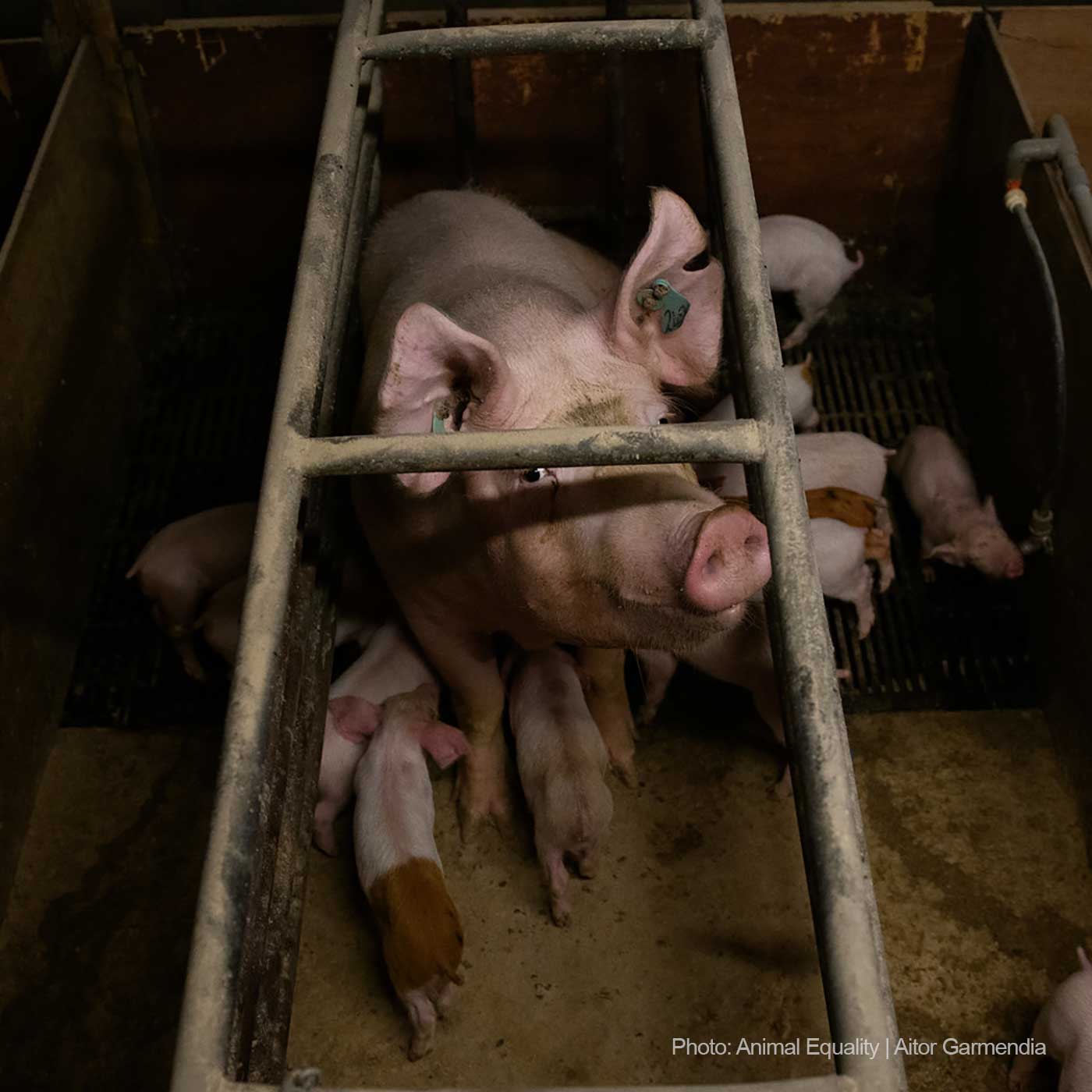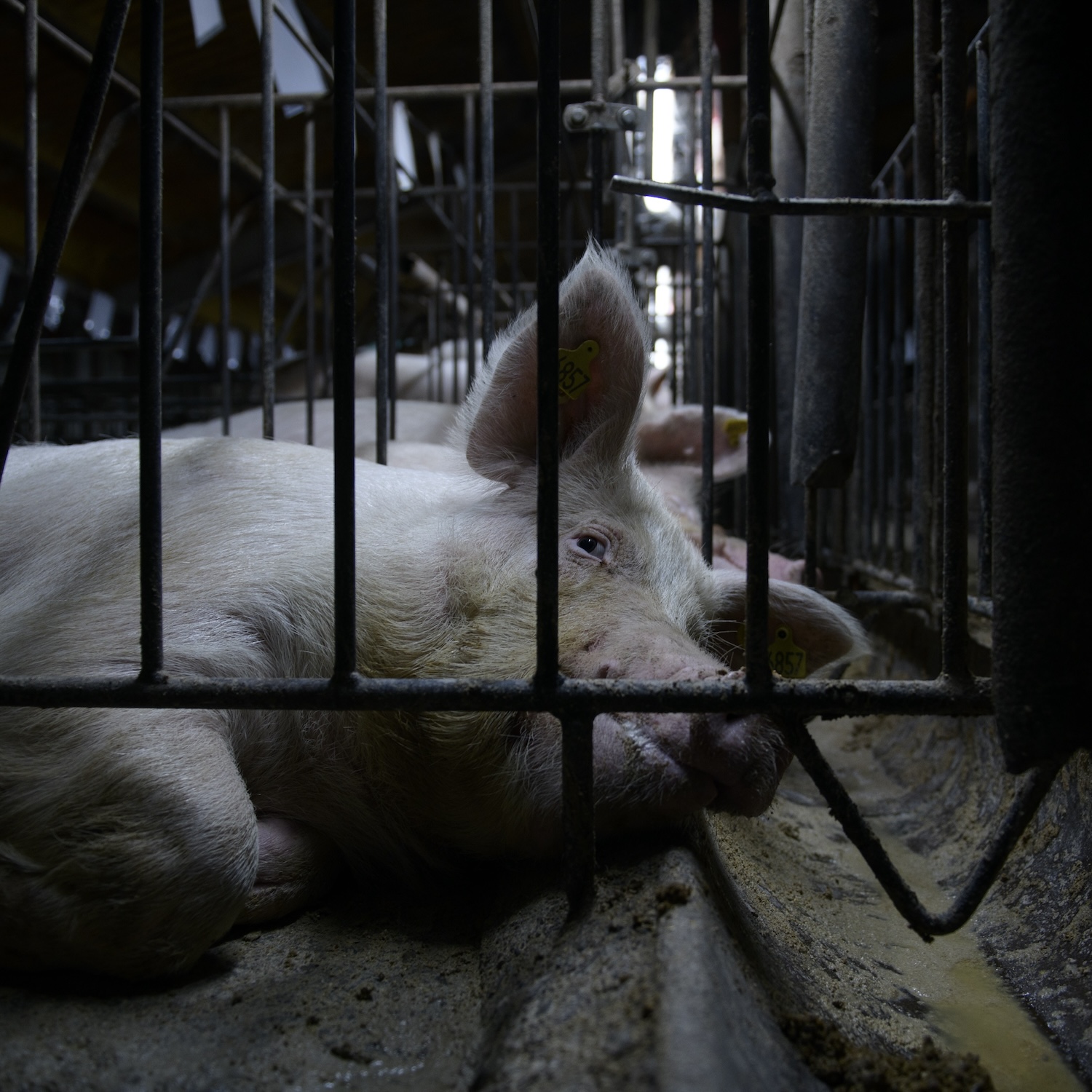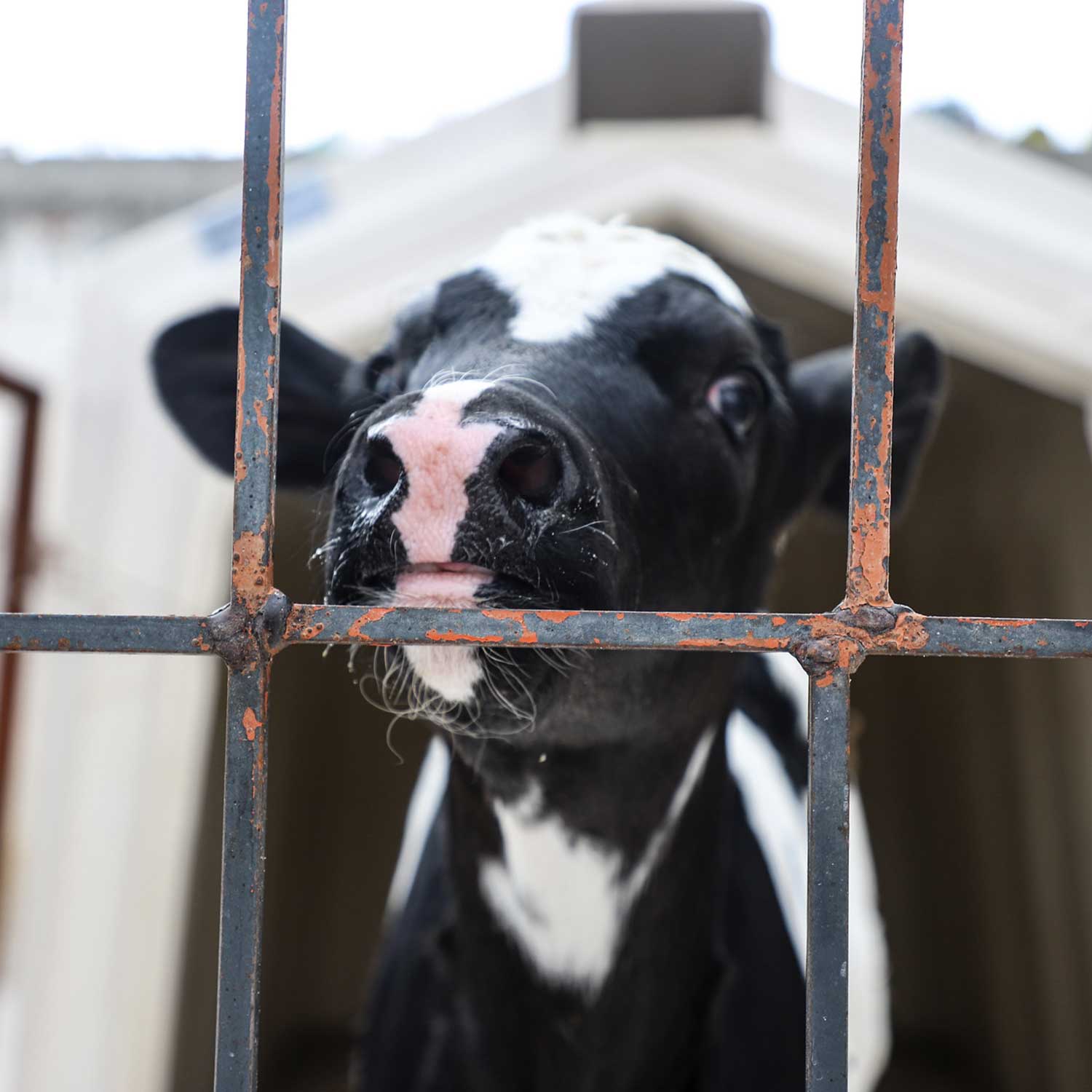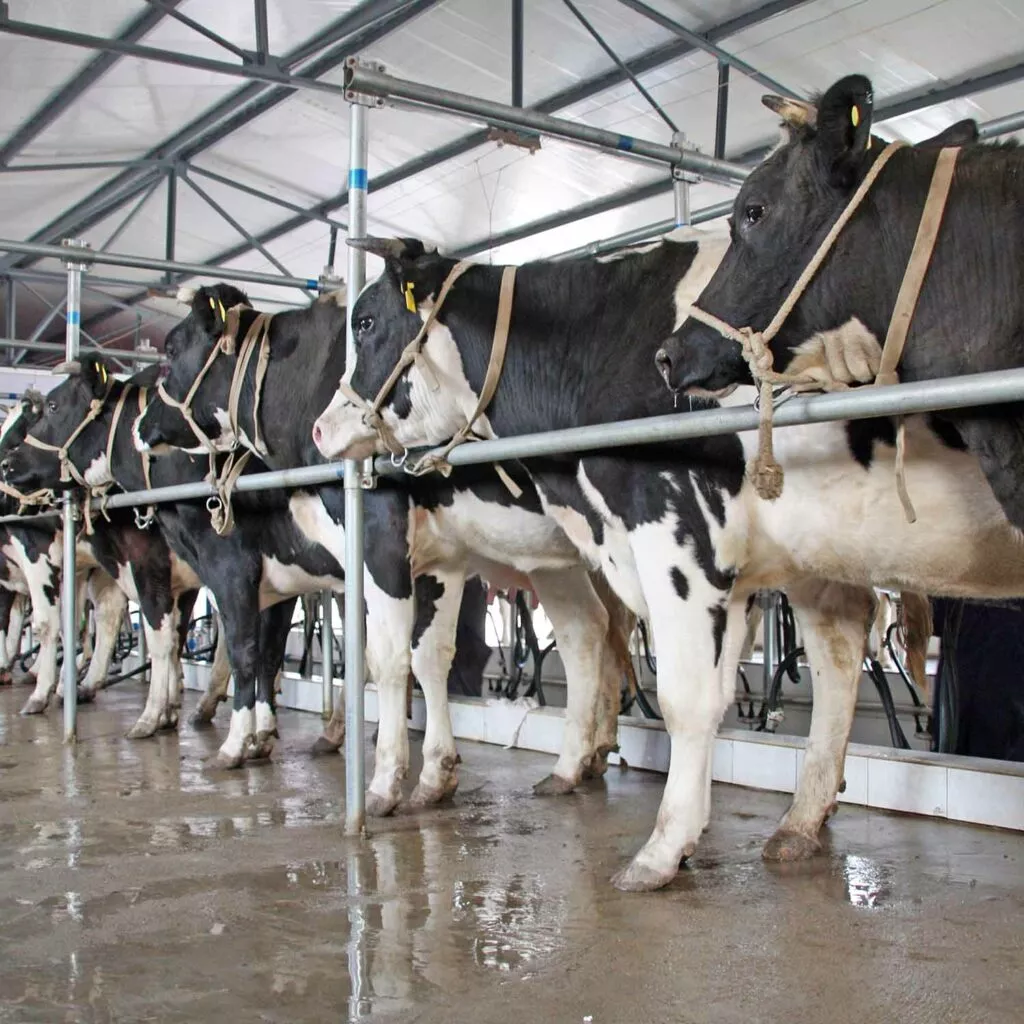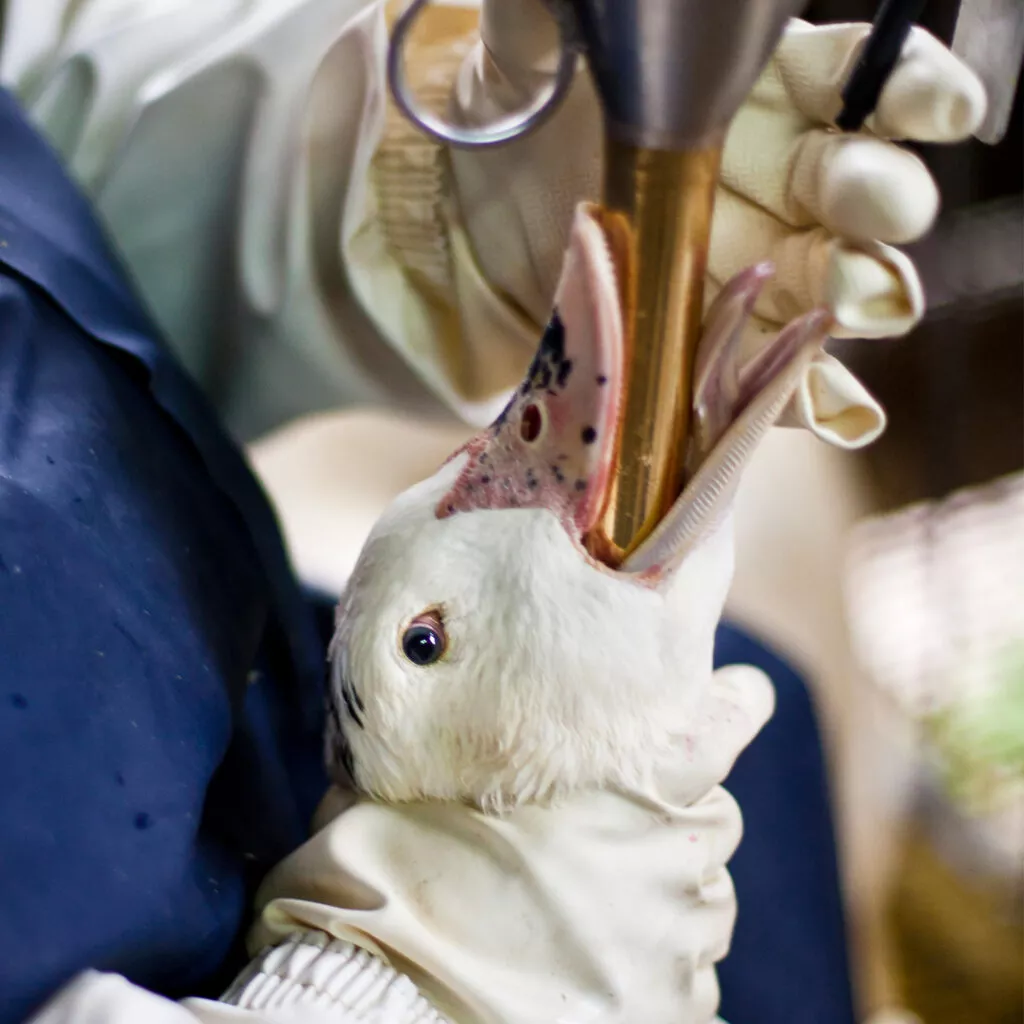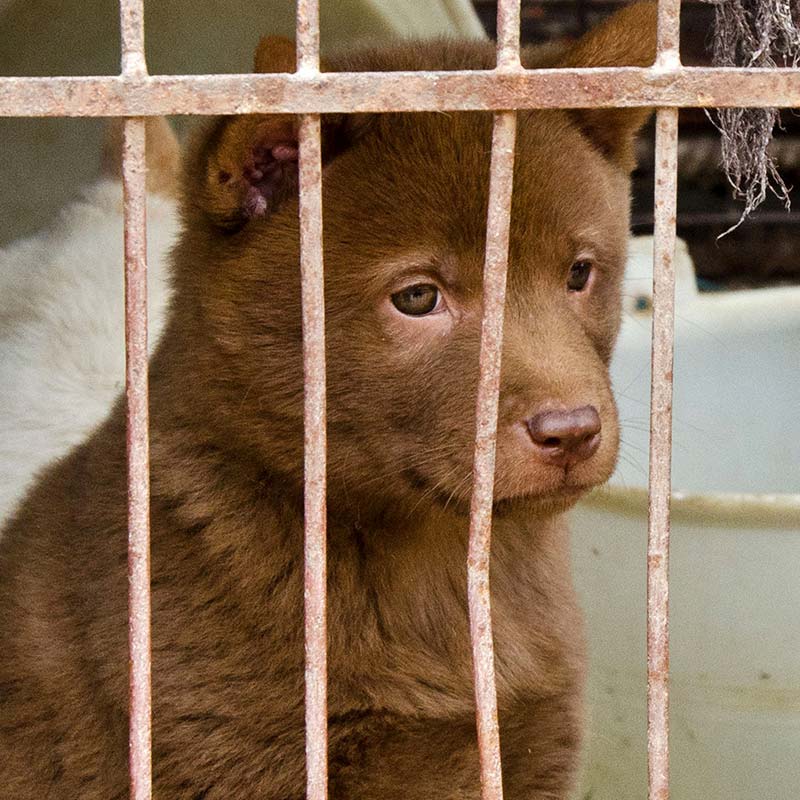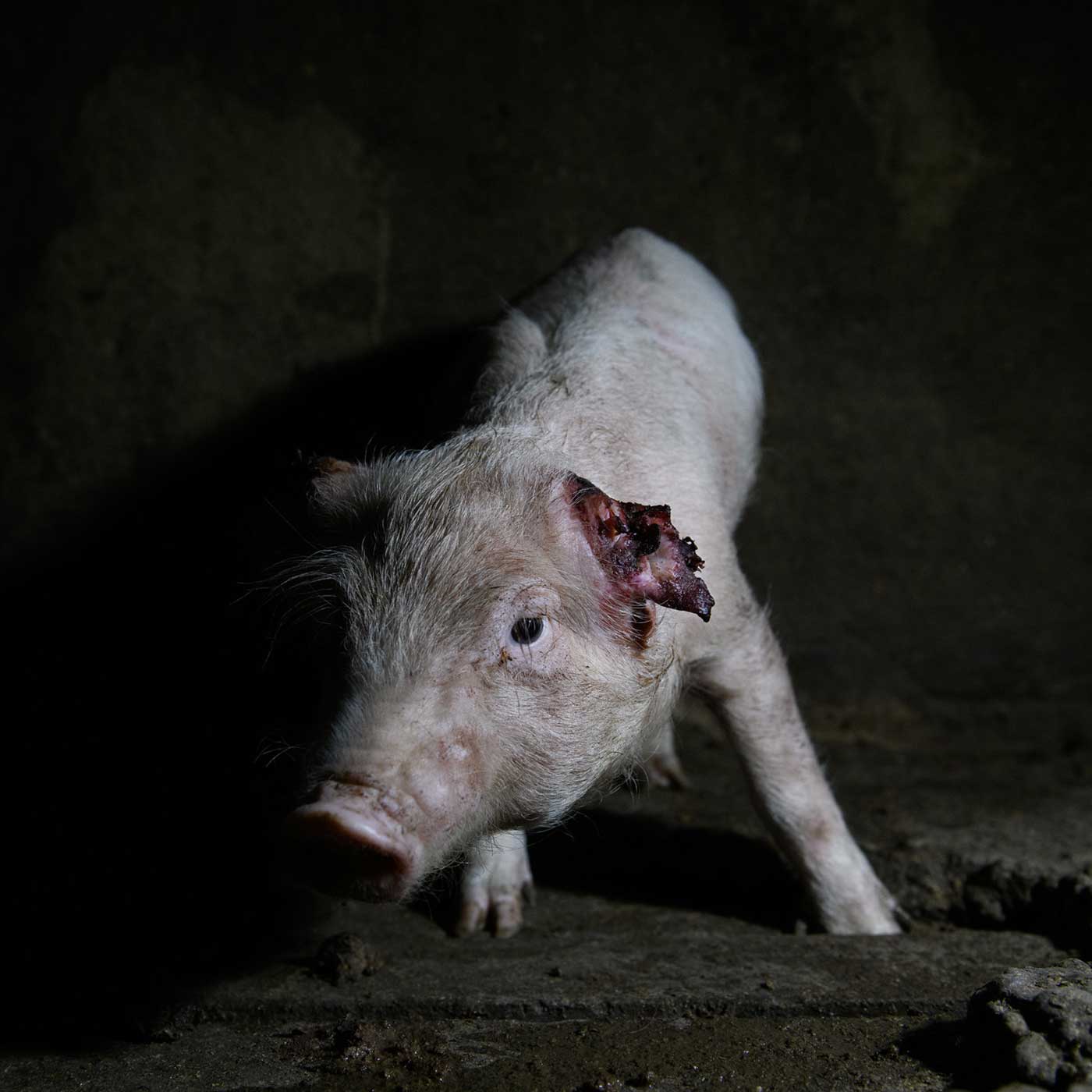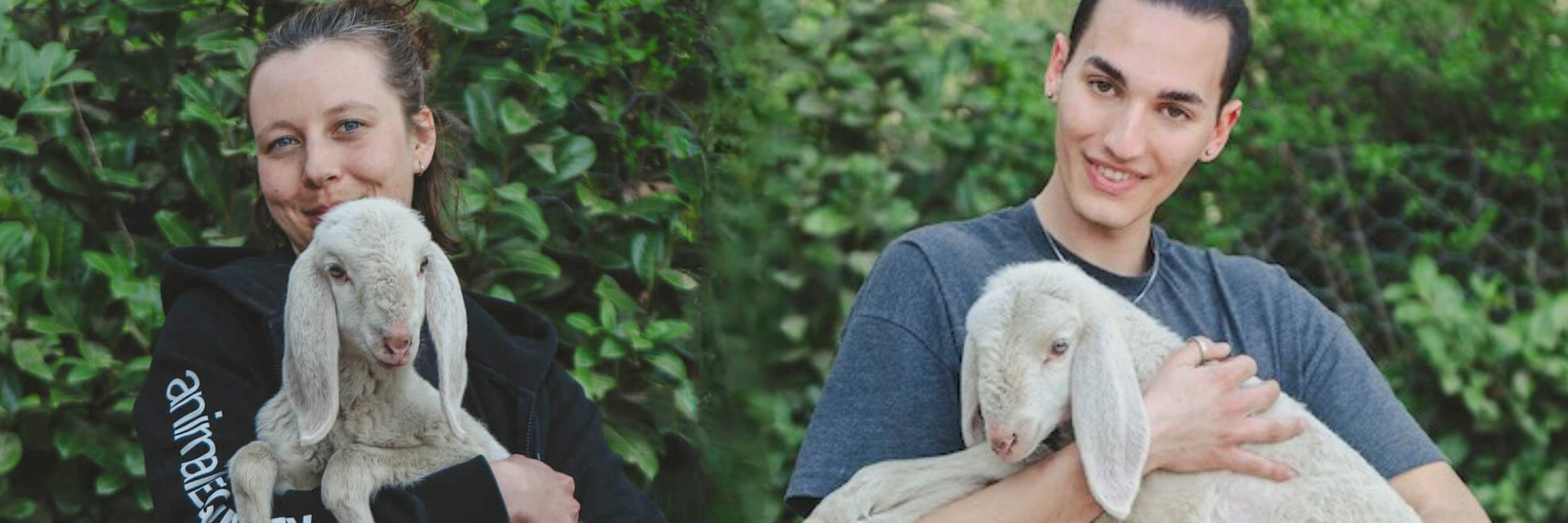
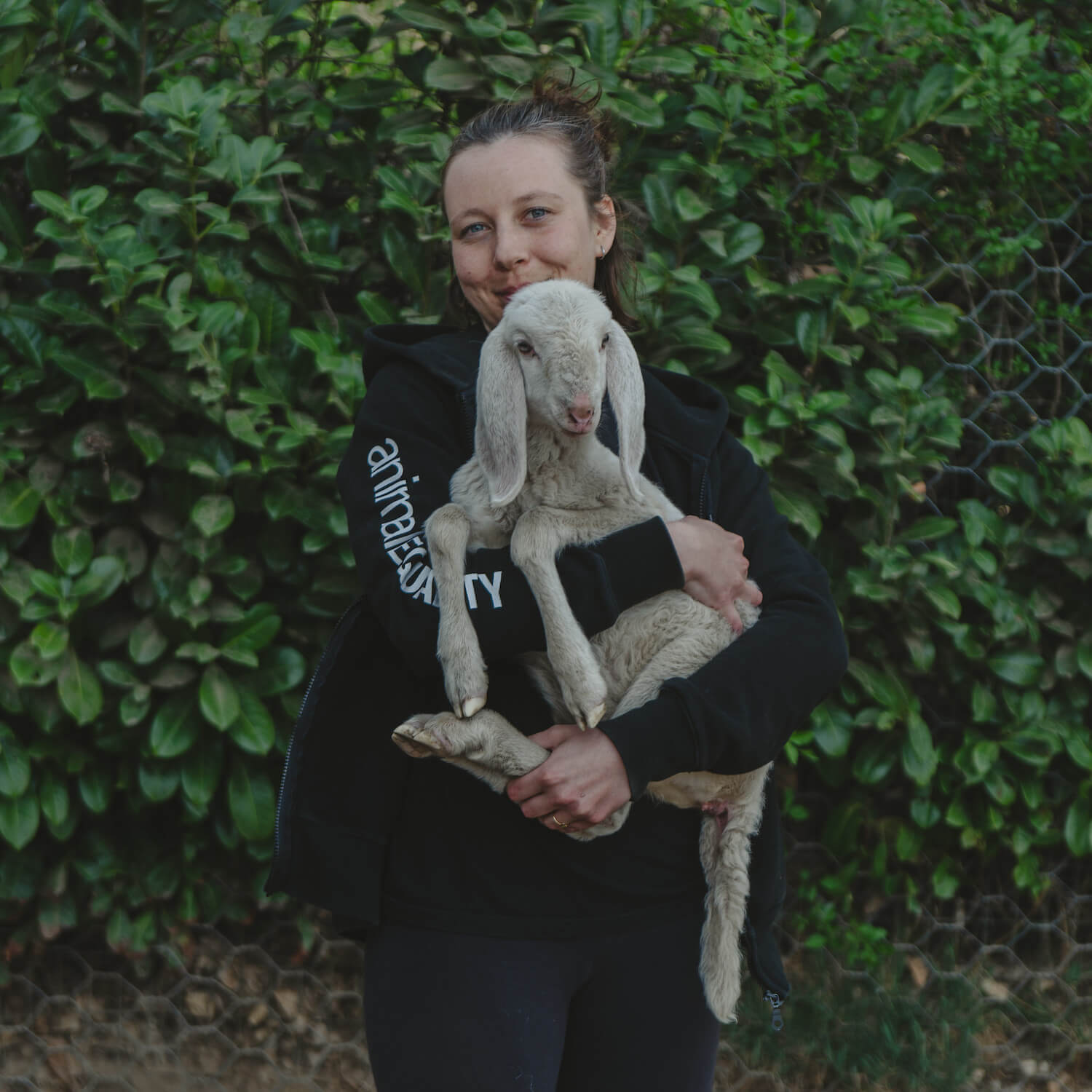
Volunteer to help animals: 6 steps you can take today
Did you know the truth about factory farming was never meant to reach you?
Behind closed doors, billions of animals endure conditions that would leave most people outraged. The system thrives on secrecy—but once the truth is out, there’s no turning back.
Mother pigs spend their pregnancies in crates so small they can barely move. Hens are packed into wire cages with no room to stretch their wings. Chickens bred for meat grow so fast their legs collapse under their own weight.
Calves are separated from their mothers within hours of birth. Female calves are funneled into the dairy cycle, while males are often discarded—either slaughtered or abandoned to die.
This isn’t just a glitch in the system. This is the system.
But here’s the thing about systems: they can be dismantled.
The question is, where do you start?
1. Hit the streets by joining a protest
Aldi has already banned cages for animals in its home country of Germany and in other countries. So, why are hens and pigs still trapped in metal cages in the U.S.?
For their entire lives, these animals live in torment, experience painful injuries, organ failure, and severe, stress-driven behaviors.
Animal Equality is leading protests across the country to demand that Aldi USA ban extreme confinement for animals in its U.S. supply chain. This is your chance to make your voice heard in person.
Ready to take action? Visit the Upcoming Events page to find a protest near you or email Susan at [email protected] if you’d like to help organize one in your area.
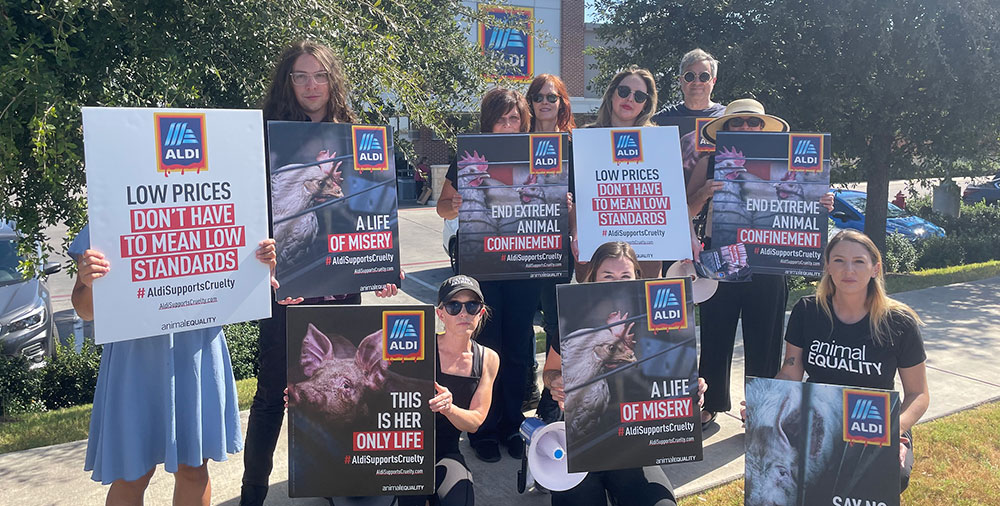
2. Take digital action from home
Can’t make it in person? No problem. By becoming an Animal Protector, you’ll be the first to know about simple actions you can take from home—like emailing decision-makers, sharing social media posts, or writing online reviews.
Ready to take your first action now? Start by writing messages to corporate executives.
3. Add your name–and your voice
Factory farms are responsible for some of the worst animal suffering in history—but your voice is powerful enough to challenge them.
Over 150,000 people have already signed Animal Equality’s petition to end factory farming. Add your name and join a nationwide movement demanding better for animals.
Your signature will support the message calling for the end of factory farming in the United States.
Want to do more? Explore our campaigns and sign additional petitions here.
4. Expose the lies behind labels
Have you ever seen packaging showing cows grazing on open fields or hens basking in the sun? The reality behind factory farm doors tells a much different story.
Pigs, cows, chickens, and other animals often live in crowded, windowless sheds—never feeling sunlight or breathing fresh air. Yet, corporations use words like “natural” and “humanely raised” to sell a story that hides the truth.
If you’ve spotted ads, labels, or marketing that doesn’t match reality, we want to hear from you. Report misleading claims using Animal Equality’s “humane-washing” form and hold corporations accountable for the stories they sell.
5. Make your plate a statement
What if your next meal could change the world?
Every plant-based dish is a step toward dismantling factory farming. It’s not just about what’s on your plate—it’s about showing others what’s possible.
Love Veg makes it easy to get started with a free cookbook packed with simple, mouthwatering recipes. Turn your kitchen into the frontlines of compassion.
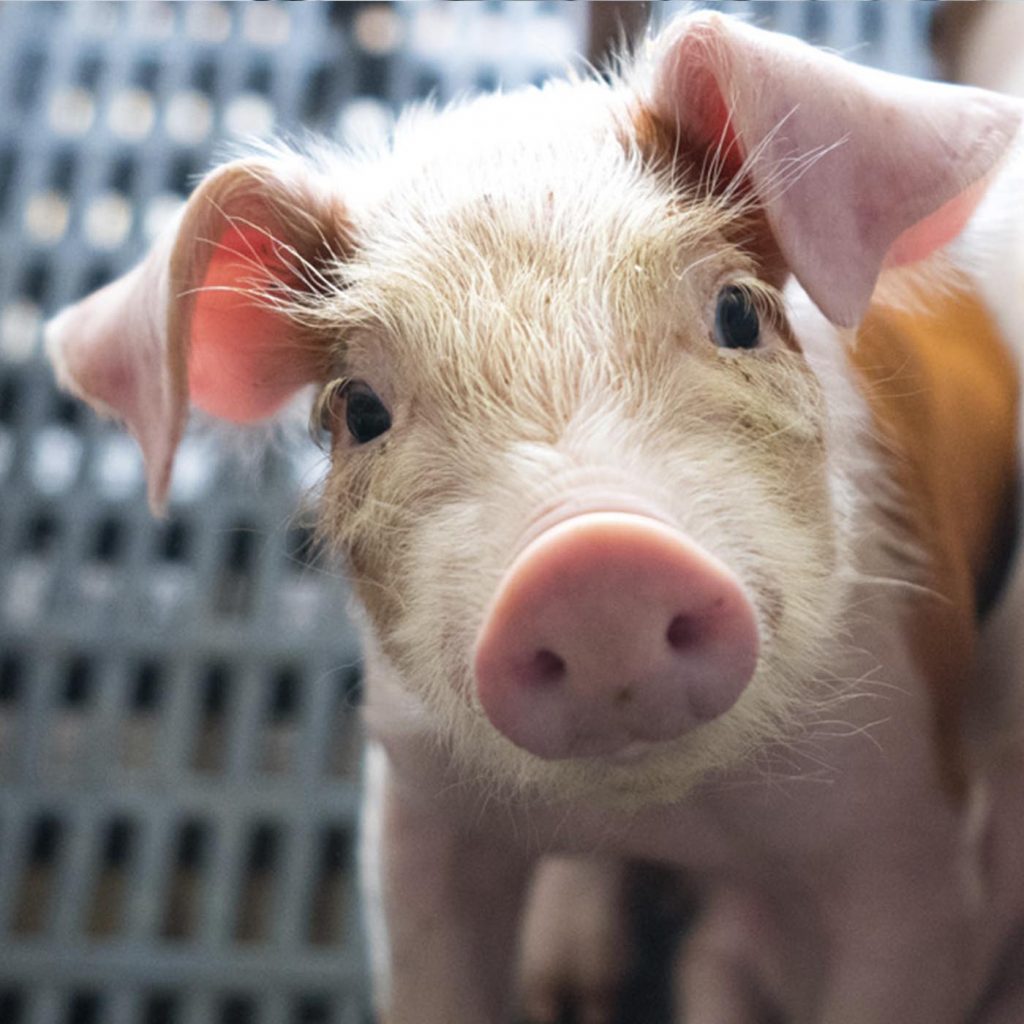
SAVE ANIMALS FROM ABUSE
Pigs, cows, and other animals feel pain and deserve to be protected from abuse.
You can protect these intelligent animals by simply choosing plant‑based alternatives.
6. Invest in compassion
Fighting animal cruelty takes resources—investigations, legal action, and corporate outreach all rely on support from people like you.
A one-time gift helps fund our campaigns, while monthly donors create the steady pressure needed to challenge corruption. Every contribution brings us closer to a world without factory farming.
Donate today and join the fight.
Which action will you take?
Change starts with one bold move. Whether you march, share, sign, or cook, every step moves us closer to dismantling cruelty for good.
How will you exercise your power today?
